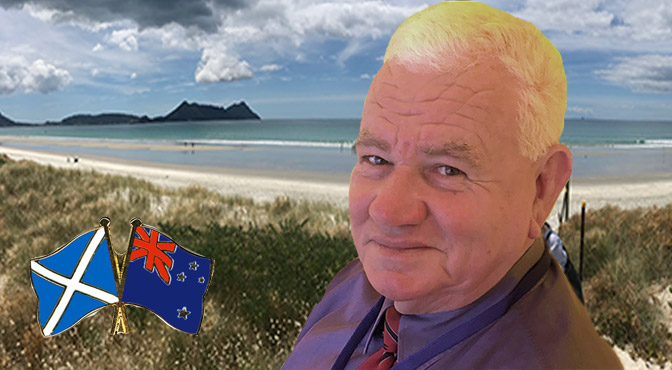
Stuart Finlayson is the renowned piper and composer from New Zealand. A prizewinner at the highest level, Stuart is well known to all generations via his outstanding compositions – tunes such as Stuart Chisholm’s Walkabout and the Motley Crew. As a teenager he left his homeland and took the long boat trip to Scotland where he studied piping with P/M Donald MacLeod and Duncan Johnstone. In this first part of this interview with editor Robert Wallace, Stuart talks of his time with these two giants of piping. Stuart is pictured above against the background of the beach near his home at Ruakaka…….
I learned pipes at the age of eight. Both mum and dad were pipers so I got the rudiments from them here on this farm in Ruakaka [near Whangarei, north island NZ]. From the chanter I went to the goose and then I gave up for several years not starting again until I was 14 or 15.
I was at the local Waipu Highland games and a light sort of went on and I though ‘I really want to play that instrument’. So I went to Lewis Turrell in Whangerei where I was at boarding school. I would walk up the road to his house once a week for my lesson. I was very fortunate that he was living there at the time.
I had piping in my family. My great-grandfather, Alexander Finlayson, was a piper. He came down here from Scotland, from Dingwall by all accounts, about the 1850s, though there is other evidence that they came from the west coast of Scotland around the Plockton area. An uncle of mine was over visiting a few years back and he was in a bar in Plockton and there was an old fellow sitting in the corner and he was the spitting image of my father.
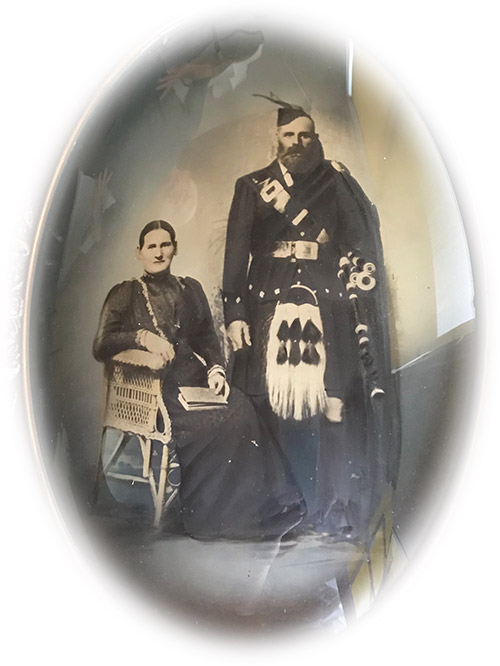
Anyway the family arrived in Dunedin in the south island after the long journey by sea, probably from the Broomielaw on the River Clyde in Glasgow. Sadly after surviving that long sea journey and establishing himself on a farm, my great-grandfather drowned in a river on the south island rescuing a sheep during a flood. He was kicked off the land for sheep in Scotland and came here and drowned because of one. No wonder I farm cattle!
I played in the Whangerei Pipe Band for a few years with Angus MacAulay as Pipe Major. He’d come out here in 1953 via South Uist and London. But I wasn’t allowed to go to him for lessons. My grandfather wouldn’t allow it because he was of the wrong religion. Strange times.
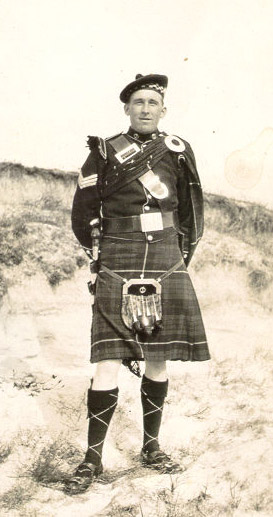
Anyway with the lessons from Lewis and the band experience I started competing in the solos in the C grade at Waipu and I think won everything that first day. I went up to B grade and had some success there and so I went to Scotland as a B grade piper.
[wds id=”2″]
I was 19 when I left here. I went by sea. It took six weeks via Tahiti, through the Panama Canal then Venezuela, the Caribbean and Lisbon. I very nearly missed the ship in Lisbon. We’d been ashore and the boat was leaving at two o’ clock in the morning. We’d been on the beer and we got back to the dock and there was the ship sailing away! There were three or four of us and when the pilot returned he agreed to take us back out in his boat. We had pockets full of escudos and gave him all the money we had. He caught up with the ship and we had to climb up the side and were promptly carpeted in front of the captain. A couple of the guys were sailors off the ship and they got into big trouble.
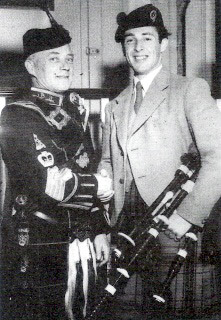
The idea of coming to Scotland was to get lessons of course, and in particular from P/M Donald MacLeod. Once we docked I pretty much made a bee-line for Grainger & Campbell’s shop [in Argyle Street, Glasgow]. I had a letter from Lewis to Donald but Donald had been here a few years beforehand and I’d had a lesson from him then and he’d said that if I ever came to Scotland I should look him up, so that’s what I did.
Donald used to teach from the end of February, I think, to get you ready for the [Gold] medal. So we did March, April, May, June, July, August and the early part of September, about twice a week. After that he’d have a break. I’d go to his house with Andrew Wright and Angus John MacLellan. The three of us went together and were taught as a group but each taken individually within the same room. In my time with him I got 96 piobaireachd direct from Donald and heard all the other ones that the other two guys were learning. It was a full education in ceol mor.
The lessons were practice chanter only and you’d go through your tune with Donald. Sometimes he’d play along with you, sometimes he’d sing along. It was great, absolutely great. He was pretty demanding in terms of what you had to do. I was learning two tunes a week sometimes because I’d go on a Friday lunchtime up to Graingers as well as to the house. I was working just round the corner with Duncan Johnstone in Finnieston Street. Donald expected the tunes to be memorised. When I first got there I remember him saying to me ‘to get the fingers going’ because we would be ‘moving pretty quickly’. It wasn’t for fun; it was for real.
• In the next excerpt Stuart talks of his association with Duncan Johnstone.











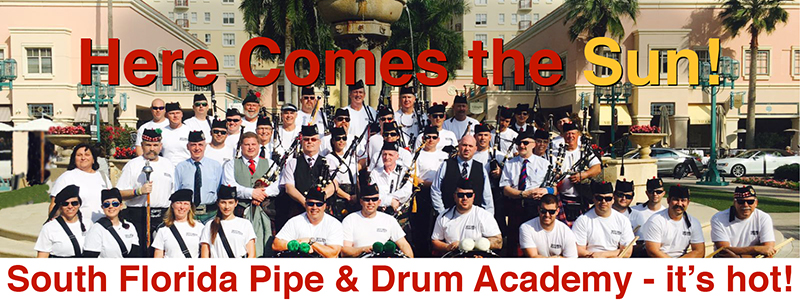





Recent Comments